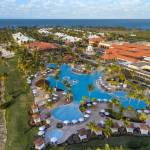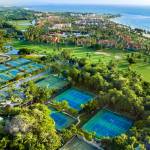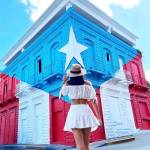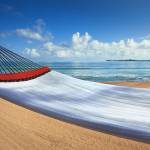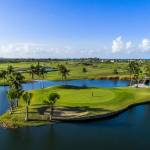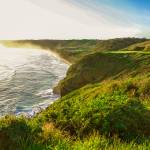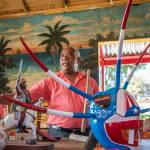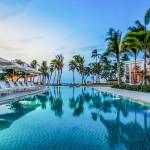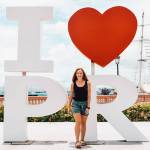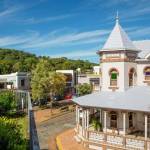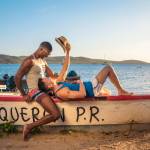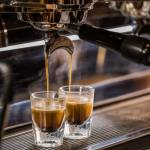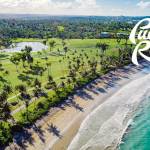As we all continue to navigate through this pandemic while hoping that much of the population also begins taking it more seriously so we can safely travel again and find some version of a “new normal” in the coming months, we are seeing several of our favorite destinations open their doors to tourists once again. We know many travelers are not ready to jump on a plane to the islands of the Caribbean, but we appreciate the approach Puerto Rico is taking with their opening by being very transparent about all their efforts, and doing everything within their power to provide a safe environment for the locals and tourists. While the overall success of openings like these is determined by the common sense of the traveler, we hope for a smooth transition and success at the airports, hotels, beaches, golf courses and restaurants.
“Puerto Rico has exercised an abundance of caution since the onset of COVID-19, which enables us to confidently reopen for in-bound tourism on July 15. Today we are hyper focused on reopening responsibly and are enforcing locally mandated regulations such as distancing, face coverings and a variety measures for businesses and properties, to ensure the safety of our guests,” said Brad Dean, CEO of Discovery Puerto Rico.
As part of the island’s responsible four-phased reopening plan, Puerto Rico reopens for in-bound tourism on July 15, at which point, travelers with a negative molecular COVID-19 test will be welcomed to the island. Residents and visitors are required to wear face masks when in public, or subject to a fine. Social distancing is enforced with floor plans and capacities adjusted island-wide, as the health and safety of visitors and residents remain a top priority. Recognizing the importance of hygiene and disinfection, the Island of Puerto Rico is applying locally enforced measures, developed by the Puerto Rico Tourism Company (PRTC), alongside the U.S. Travel Association (USTA) guidelines, to safeguard the wellbeing of residents and visitors.
Island Arrival
The Puerto Rico National Guard is assisting with enhanced health screenings of all arriving passengers at the Luis Muñoz Marín International Airport in San Juan Airport, where all passenger flights are currently being diverted. Face masks are mandatory and thermographic cameras remain operating to monitor temperatures. Passengers must complete a travel declaration form from the Puerto Rico Health Department, as well as demonstrate a negative molecular COVID-19 test from the 72 hours prior.
“Travelers coming to the Island can expect a series of measures all aimed at ensuring their overall well-being, from the moment that they arrive at the airport, to the moment they check out of their hotel,” added Dean.
If travelers arrive on the island without the requested documentation, they will be offered a rapid COVID-19 test at the airport. Even if the test result is negative, it will be mandatory for the traveler to quarantine and cover the medical expenses/possible extended stay. The quarantine is mandated until the traveler provides proof of a negative molecular test result on island; a list of testing sites in Puerto Rico will be available on site and online. If a negative molecular test is not provided, the traveler will be required to quarantine for 14 days, or the length of their stay if less than 14 days. Puerto Rico’s curfew is in effect from 10:00 PM – 5:00 AM through July 22; exceptions are for emergencies and essential workers.
Experiences
Public beaches and natural reserves are accessible for sunbathing and other recreational activities, which are permitted with those in the same household. Hotel pools are open within curfew hours. Limited ferry service to Vieques and Culebra is available. Tickets must be purchased online. Venues will reopen in phases, with face masks and social distancing enforced, and in accordance with the CDC’s guidance for large events and mass gatherings. Drive-in and open-air events are held with limited capacity, and indoor space venues such as the Puerto Rico Convention Center are open.
Businesses
Restaurants are operating at 75% capacity and temperature checks are being performed before entering; those with temperatures over 100.3 will be denied entry. Supermarkets, agricultural markets, pharmacies, and gas stations are open, with supermarket delivery services available through midnight. Malls and other retail stores remain open, with no leisure strolling permitted and appointments required. Hair salons, barbershops, and individual spas are open via appointment, with the exception of saunas. Casinos have reopened at 75% capacity. Other non-essential businesses that are open include movie theaters, gyms, film industry support and ad/government agencies.
“Cleanliness, health screenings, open-air spaces and natural attractions have become drivers in today’s travel decision process. Puerto Rico is a destination leader in these new protocols and certainly over delivers in beaches, mountains, our rainforest, and other natural settings that travelers are craving. Dorado Beach, a Ritz Carlton Reserve have announced it’s reopening and along other luxury properties in our portfolio, these have amenities easily accessible to guests with private beaches, on-property nature reserves, wellness options and golf courses,” added Dean.
A Breakdown of the Safety Protocols
Transportation: Certified transportation carriers will properly disinfect vehicles and have hand sanitizer available. Drivers will wear gloves when handling doors and luggage. Face coverings will be mandatory for drivers and passengers. Ridesharing options like Uber have released regulations that also mandate face coverings for drivers and passengers, with no front seat passengers permitted.
Dining: Options within the lodging section will ensure floor plans maintain distancing protocols, with buffets, salad bars, and self-serve options eliminated, and reusable menus prohibited. Employees will be required to use face masks and gloves when serving guests.
Lodging: Thoroughly sanitized properties that follow PRTC standards will be certified with island-specific health certification seals. Guests will receive a Health & Safety guide detailing the specialized measures implemented by each property individually. We recommend visitors connect with their hotels/hosts directly for additional information.
Hotels/Resorts: Properties will conduct temperature checks, screen symptoms and disinfect luggage in reception areas upon entry, while following high standards of cleanliness and housekeeping procedures in accordance with CDC and EPA guidelines. Hotel pool facilities and fitness centers/spas (except for saunas) are open within the hours of 5:00 AM and 10:00 PM at 25% capacity, maintaining the proper locally enforced measures including social distancing. Face masks will be required in public areas, with limited capacity encouraged in elevators. Furniture, chairs, tables, and surfaces will be sanitized continuously.
Short-Term Rentals: These will be thoroughly cleaned and disinfected, following the health and safety protocol enforced by the Government and the PRTC, including the proper sanitation of kitchenware, glassware, and utensils. Each will be equipped with hand soap, hand sanitizer, and sanitizing wipes for guest convenience. Guests are required to complete a Travel Declaration Form, with guests encouraged to make a claim to the PRTC should they find the unit did not meet these requirements.
Attractions: Public beaches, golf courses and natural reserves are open for sunbathing and other recreational activities for those in the same household. Malls, shopping centers, theaters and museums are enforcing social distancing and may require appointments. Hand sanitizing stations will be set up in targeted areas like entryways, elevator banks and high-traffic spots. Cleaning and disinfection of surfaces will be augmented, while employees will be screened daily for symptoms.
Casinos & Gaming: Casinos have wellness checkpoints at points of entry, which consists of temperature checks and hand sanitation. Gaming stations (slot machines, chairs, and tables) are properly cleaned and disinfected every hour, after each guest, or upon guest request. Social distancing and face masks are required, and casino personnel and guests at gaming tables wear gloves.
Q&A
Is it safe to travel to Puerto Rico? Should I / should travelers cancel their trips?
If you are sick, an older adult, or someone with chronic medical conditions, leading health authorities recommend delaying or avoiding travel.
What should travelers do if they begin experiencing COVID-19 symptoms? What immediate steps should they take?
Travelers experiencing COVID-19 symptoms should stay in their hotel rooms and contact their hotel front desk to get support. If travelers are not staying at a hotel, contact the nearest hospital directly. It’s important that travelers and hotel staff call hospitals first before visiting, so that appropriate transportation, screening and care can be arranged, to protect those feeling ill and others. Puerto Rico hospitals adhere to the same federally mandated health safety guidelines as those on the mainland. Common mainland franchises like Walgreens and CVS pharmacies are available island-wide and are enforcing high standards of health safety throughout the Island.
What actions is the island taking to prevent the spread of coronavirus?
Puerto Rico was the first U.S. destination to use thermographic cameras in their airport and implement a curfew, effective for everyone including tourists, from 10:00 PM – 5:00 AM from June 16 through July 22. The only exceptions to the curfew are for those who are working or in cases of emergency. Strict social distancing measures are in place island-wide, with face masks mandatory in public.
What health & safety protocols does the Island have in place?
High standards of health and safety have been implemented throughout the island, which include locally enforced measures developed by the Puerto Rico Tourism Company (PRTC), alongside U.S. Travel Association (USTA) guidelines, to safeguard the wellbeing of residents and visitors.
Are island hospitals equipped to address coronavirus?
All hospitals on the island have established protocols for admitting, treating and collecting samples from patients who are experiencing symptoms, and hospital staff will work with the Department of Health if testing is needed. Funds have been made available on the island to help hospitals prepare facilities, purchase materials, and train nurses and paramedic staff. Puerto Rico also has epidemiologists throughout the island, who specialize in disease control and prevention, to advise on transportation, testing, and care for individuals who think they may have COVID-19.
Where will people be housed if they need to be quarantined?
If cases arise, these decisions will be made on a case-by-case basis with local health authorities. Hospitals have prepared facilities for potential patients. If the CDC, CBP or PRDH directs hotel guests to self-isolate, there are protocols for management to follow to keep staff safe.
What will hotels, restaurants and tour operators do if a staff member tests positive?
The CDC has outlined specific guidance for businesses and employers, with information on what to do if employees are sick, cleaning advice, and contingency planning. Along with the Puerto Rico Tourism Company (PRTC), we have also provided guidance and information to all tourism partners. The industry has specific measures in place to ensure hotel management, businesses, and other partners within the industry have the latest information on COVID-19, including prevention measures on the island, personal prevention tips for their teams and travelers, cleaning and disinfecting protocols, and guidance for what to do if their staff or guests begin experiencing symptoms.
It is critical to seek medical advice from a regional epidemiologist if you are concerned your guests or staff may have COVID-19. Symptoms include, but are not limited to, fever, cough, sore throat, fatigue, and shortness of breath. The Puerto Rico Health Department has specific protocols in place with state epidemiologists to screen and test patients.
What will hotels, restaurants and tour operators do if a tourist who has recently visited them tests positive?
Along with the Puerto Rico Tourism Company (PRTC), we have provided guidance and information to all tourism partners. The industry has specific measures in place to ensure hotel management, businesses, and other partners have the latest information on COVID-19, including prevention measures on the Island, personal prevention tips for their teams and travelers, cleaning and disinfecting protocols, and guidance for what to do if their staff or guests begin experiencing symptoms. More information on specific steps can be found in the latest industry guidance from the Puerto Rico Tourism Company. This guidance is consistent with what the CDC has outlined for businesses and employers.
Given the curfew issued by the Governor of Puerto Rico, do tourists have to stay in their rooms?
Yes, from 10:00 PM to 5:00 AM tourists are not permitted to go out unless it’s an emergency.
Can tourists staying at hotels use the pool and/or go to the beach?
Public beaches are accessible for sunbathing and other recreational activities for those in the same household, while hotel pool facilities are open, both within curfew hours while maintaining the proper locally enforced measures including social distancing. We recommend travelers reach out to their respective hotel property or short-term rental host for further guidance on protocols. All measures in place are to protect the health and safety of residents and guests.
Can I go to Vieques & Culebra?
Limited ferry service to Vieques and Culebra is available. Tickets must be purchased online through www.PorFerry.com. There is currently one round trip available daily to each island.
Can I hang out in the lobby of my hotel when I’m in Puerto Rico?
If in a public area of a hotel or resort, social distancing and face masks are mandatory, or individuals will be subject to a fine. Please consult with your specific property for other policies in place.
Are the beaches OK to go to if I keep my distance from people?
Public beaches are accessible for enjoyment, including sunbathing and other activities, with those in the same household upholding distancing measures.

